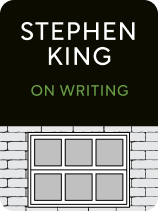

This article is an excerpt from the Shortform summary of "On Writing" by Stephen King. Shortform has the world's best summaries of books you should be reading.
Like this article? Sign up for a free trial here .
Does Stephen King have a writing schedule? How does maintaining a writing schedule help you produce consistent and quality work?
For Stephen King, a writing schedule help him stay on track and produce work every day. This has helped him become a better writer, and enabled him to turn out writing on a daily basis.
Keep reading to find out more about Stephen King, his writing schedule, and how to create good writing habits.
Stephen King’s Writing Schedule: Write a Lot
How much should you write everyday? It depends on the writer. For Stephen King, a writing schedule works best when it’s frequent and structured.
James Joyce was a famously slow writer. There’s a (possibly apocryphal) story about him moaning to a friend that he’d only written seven words that day—and he didn’t know what order they went in! Harper Lee wrote only one book, To Kill a Mockingbird—King wonders how she spent her time and why she didn’t do more with her talent.
On the other hand, prolific writers, naturally, write a lot. Anthony Trollope, producer of tomes like the 848-page Can You Forgive Her?, wrote for two and a half hours every morning before he went to his day job in the postal service. English writer John Creasey wrote 600 novels under 28 pseudonyms in his lifetime.
King is famously prolific, which isn’t a surprise given his personal working schedule. Stephen King’s writing habits have helped him reach this level of success.
- He writes ten pages a day, or 2,000 words. Every three months he produces about 900 pages, a good-sized novel.
- He dedicates his morning to writing time. He doesn’t move on to his errands and reading until he finishes his writing goal.
- He writes every day of the year, even holidays. He doesn’t like taking a break from a story once he starts, otherwise it starts feeling cold and he loses the rhythm of the story.
- He believes a first draft of a book shouldn’t take more than three months, or else the story starts feeling foreign.
Where to Write
Your writing location should be a dedicated place where you block out the rest of the world, because you’re creating your own world. This is how Stephen King’s writing schedule works.
Most likely, you’ll work best in a place that’s yours, not a coffee shop or a park bench.
Eliminate all distractions possible—your phone, the view out the window, alarms. Shut your door so people know not to disturb you. This doesn’t have to mean silence—King listens to loud hard rock while writing, but his music is another way of blocking out the rest of the world. Stephen King’s writing habits depend on his process.
How to Get Started
If you’re a new writer, it’s asking too much to adopt Stephen King’s writing habits. Here’s how he suggests you get started:
- Set a habit: define your writing location and carve out a daily time when you’ll be writing.
- During that time, shut your door.
- Set your daily goal low and achievable. He suggests 1,000 words a day. Until you meet this goal, your door stays shut.
- Take no more than one day off a week.
Don’t Wait for a Muse
Some writers wait for inspiration to strike from the heavens, and in its absence they putter about not producing any work. This is not how you get better. Stephen King says a writing schedule is a better bet.
King says his muse isn’t an angel who bestows wonderful ideas with a wand; his muse is a gruff, surly guy living in the basement who wants to see labor before he awards inspiration. Your muse will visit, but you need to have an “Open for business” sign on your door. The best way to show this is to write.
The hardest time during writing is usually at the beginning. Once you start, it gets better. For Stephen King, a writing schedule helped him stay consistent and improve.

———End of Preview———
Like what you just read? Read the rest of the world's best summary of Stephen King's "On Writing" at Shortform .
Here's what you'll find in our full On Writing summary :
- Stephen King's personal writing habits that led to superstar books like Misery and It
- How to make a story and characters feel real
- Why you should never use adverbs






